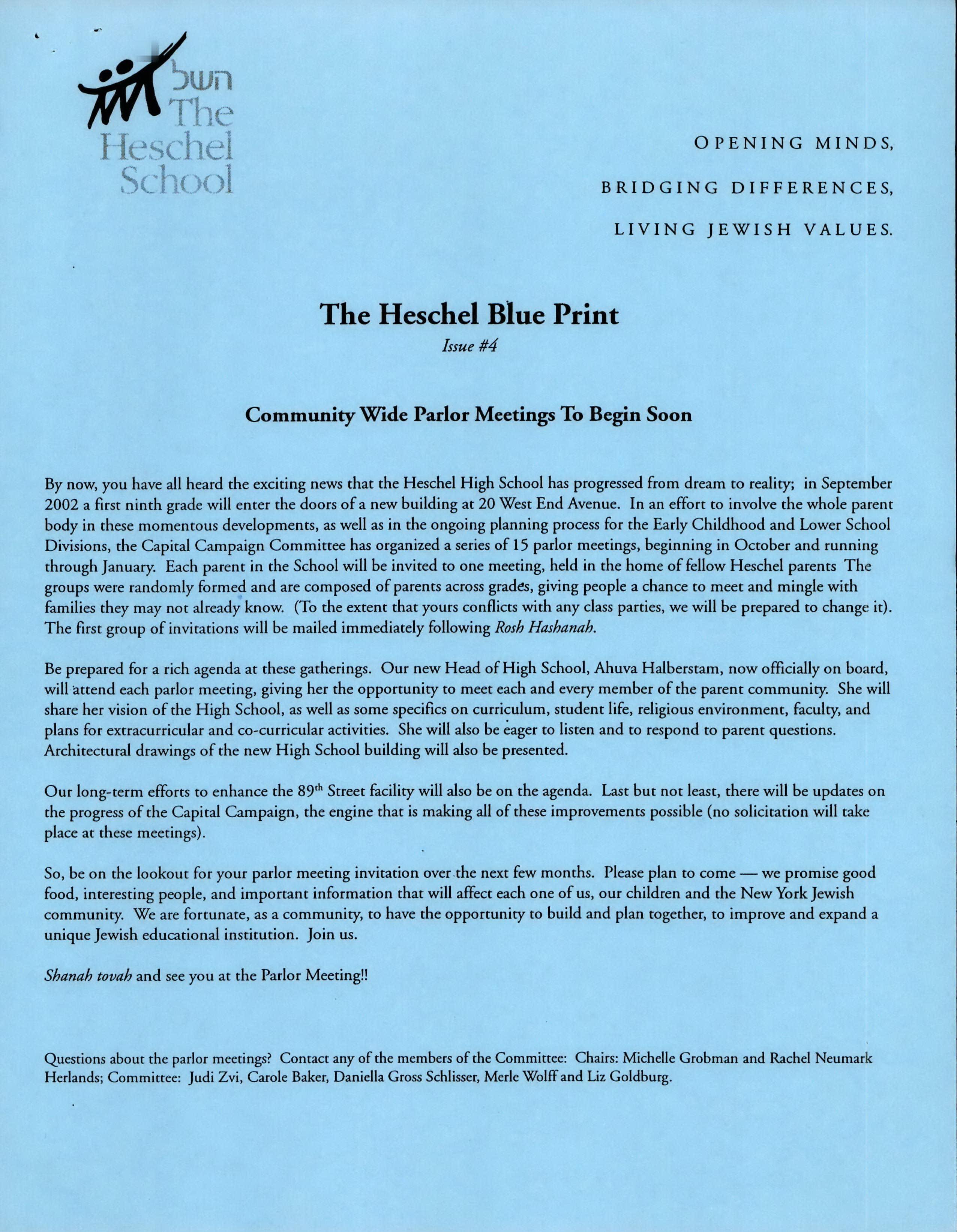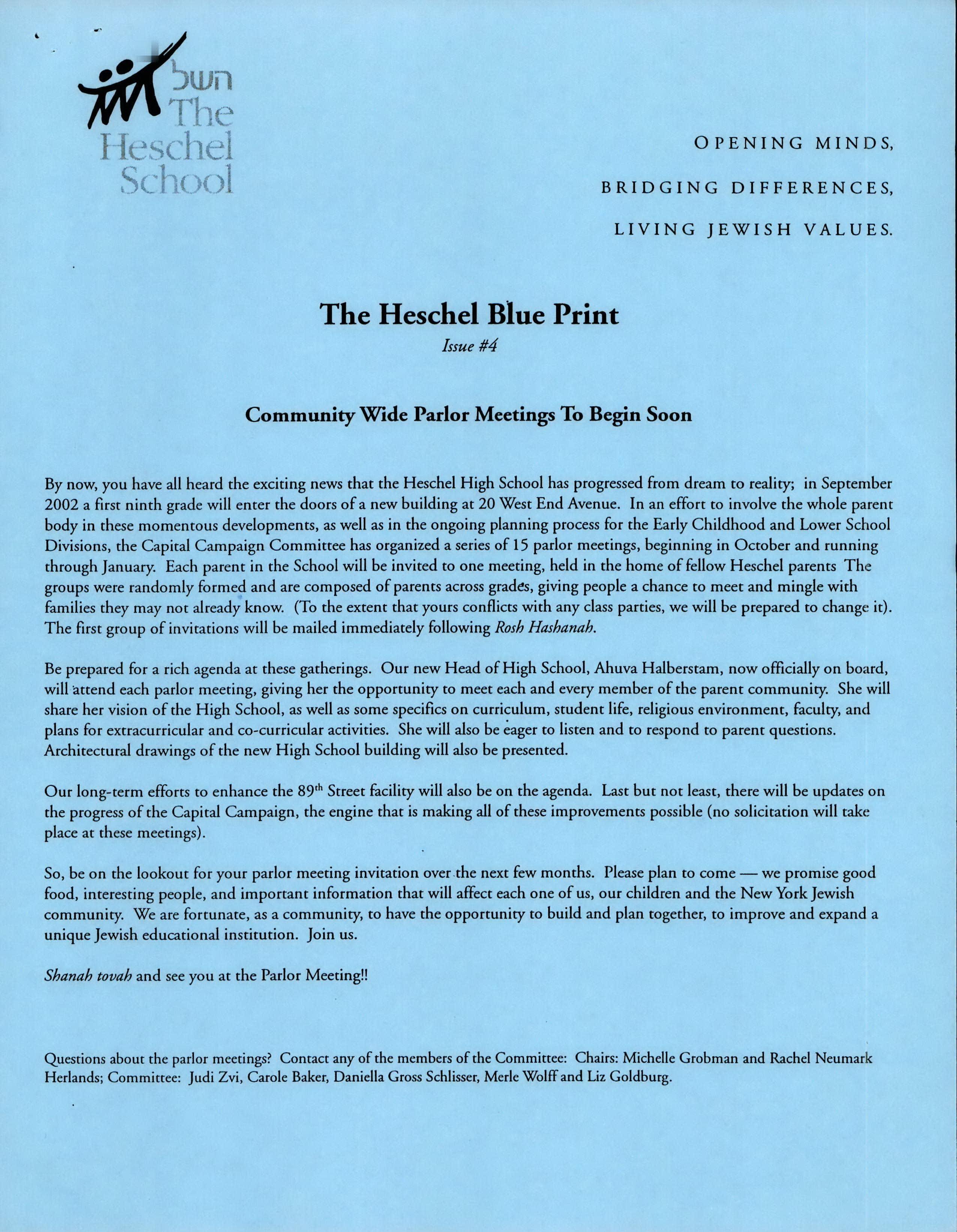The Heschel Blue Print
Issue #8
The Heschel High School: Creating a New Template
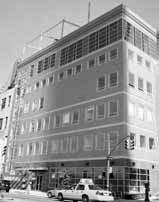
What seemed a dream a few short months ago became a reality this September when 42 very enthusiastic students, with great expectations, crossed the threshold at 20 West End Avenue. A world, years in planning and packed with potential, awaited them; our community eagerly watches as it unfolds…
“High school should not be just a precursor to something else; it is its own experience. The underlying goals at The Heschel High School are to encourage students to live through their high school years fully, to find meaning in their lives, and to experience daily the pleasure of intellectual endeavor and social interaction.”
So explains Ahuva Halberstam, Head of High School. The sparkling new facility, located on West End Avenue between 60th and 61 st Streets, serves as a metaphor for the culture created by the administration, staff and students of the newest division of our school. The building is flooded with sunlight, warm and joyous and welcoming. In recalling the first time that the students entered the building, on Monday, September 9th, staff members describe a striking scene in which our 42 students ran about in amazement, awed by the school’s bright newness, its huge windows framing waves of sunlight reflected in the shiny new floors.
This feeling of openness and unlimited potential is woven into the school’s curriculum, into the interaction between teachers and students, into the processes set into place from the start.
“ What sets the Heschel High School apart is that mechanisms were created whereby the child-centeredness of the lower school — the very hallmark by which we are known — could be affirmed and continued in the high school,” said Peter Geffen, Founder of The Heschel School. “This child-centeredness characterizes each division of the school and is at the very core of all that happens at the high school.”
The quality of relationships and the nature of “beginnings” are approached from multiple perspectives within the curriculum that was developed for the high school and in the ways that staff and students are encouraged to interact.
“Students feel they have a voice and they are engaged, with the faculty and with each other. There is a virtually seamless meshing of the 19 on-going Heschel students with the 23 students who joined our school in ninth grade. The atmosphere of openness is a joy to watch,” said Roanna Shorofsky, Head of School.
The climate of the school is infused with respect for the individual. At the start of the academic year, each student was presented with a contract in each class, between teacher and student. The contract delineated the class policies and the rationale for each policy. In addition, each instructor listed his/her responsibilities to the students. Students started the year knowing exactly what would be expected of them as well as what they could expect from their teachers.
Students and teachers have an informal, comfortable relationship and, following the lower school model, they are on a first name basis. The teachers are available to the students throughout the day and the teachers often eat with the students, at lunch time.
O P ENINGMINDS , BRIDGINGDIFFERENCES , LIVING J E WISHVALUES .
©Annie Schlechter
Heschel High School Sept. 30, 2002
On a more formal basis, each teacher serves as advisor to five students and advisor and advisee meet periodically with the student’s parents to set specific academic, social and behavioral goals for the child. These goals are revisited mid-year and are reviewed at the end of the year and are used as a tool to assess the student, as well as to evaluate the school’s progress in helping students to achieve these goals.
The complexity of relationships among humans as well as between humans and the Divine will be studied in great depth this year within the context of both the Jewish studies and general studies curriculum. A ninth grade course in Limude Qodesh (Study of Sacred Texts), entitled “Creation and Covenant” – is a topic especially appropriate to the “creation” of a new high school and the development of a new set of covenants between student and student, student and teacher and teacher to student. The class will study texts that describe the processes of creation as well as the relationships between people, God and the world in the first generations of humanity in order to illuminate the characteristics and complexities of the covenantal ideal. The first semester is devoted to investigating what core values are built into the way God created the world while the focus of the second semester will be what it means for Jews specifically to be in a covenantal relationship with God.
In English and History, the students are also studying beginnings – by learning about the ancient world and how the ancients saw their gods and understood their relationship with them. The students explore many different literary genres, including mythology, epic, poetry, drama, dialogue, narrative and history, with an emphasis on better understanding their cultural ancestors. In social studies, the Heschel ninth graders will learn about the great, early civilizations of Mesopotamia, Egypt, Israel, Greece and Rome, and the place and treatment of the individual within these societies. Identifying central organizing principles of ancient societies enables students to stand back and gain perspective on the organizing principles of our own society.
In order to create a just society, or “kehal tzedek”, within the high school — a culture where every person is treated with dignity and respect — the students can expect to have a real voice within the context of their Student Senate, which comprises five student representatives and a teacher and which meets on a weekly basis to discuss concerns of theirs, fellow students or faculty. These issues, once researched, are then presented for discussion and vote at Town Meetings held every Friday and attended by all students and teachers of the high school. Votes are private, with each student and staff member holding one vote and a two-thirds majority needed to pass any issue presented to the Senate.
To address personal issues of perceived unfairness, a Vaad Tzedek (Fairness Committee), has been implemented. It comprises two students and a rabbinic representative. The Vaad will hear complaints, which are kept confidential, and then will attempt to mediate the dissatisfaction so that both parties feel they have been heard. If one party does not feel satisfied, the issue may then be brought to a Town Meeting for discussion.
The school’s commitment to enabling each student to find his/her own voice is reflected in its daily prayer service where, according to Rabbi Dov Lerea, Dean of Judaic Studies, there are three objectives underlying the high school’s development of tfilah (prayer) groups: establishment of a core minyan (named the “Beit Midrash”minyan) which is egalitarian and run by students; an ongoing attempt to support a range of diverse and authentic expressions of other minyanim; and, most important of all, a commitment to creating a unified community that transcends all of the diversities.
To further reinforce the principle underlying a Heschel High School experience, the school celebrates the impact each individual may have on his or her world through its “People Who Make a Difference” Rosh Chodesh speaker series. For the high school’s first Rosh Chodesh celebration, Dr. Barry Coller of Rockefeller University spoke about the unique challenges inherent in combining science with humanism. All students and their parents were invited to the special program that included tfilah and breakfast.
Other extra-curricular activities reflect the students’ own interests. Several clubs have already been formed, all at the students’ initiative, including a knitting club, as well as choreography, newspaper, guitar, jazz band, choir, and boys and girls basketball teams. The school also encourages the students to make use of resources in the area – such as the JCC of Manhattan, Lucy Moses School, area synagogues –and posts flyers notifying them of clubs and community service opportunities that might be of interest.
“The reality of the High School already exceeds my expectations,” says Roanna Shorofsky. “I am confident that our students will come away from this school with a connection to our texts and appreciation of the arts that will enrich their lives and the lives of those around them. Fifteen years from now, I envision that the Jewish community and the community at large will gain enormously from these students who will contribute to the world in a myriad of ways – as simply as in the way they think and act and by virtue of who they are.”
Donors to the Capital Campaign
- As of October 21, 2002
Parents, Alumni, Trustees and Administration
Carolyn Murray and Bradley Abelow
Alexandra and Joel Ackerman
Suzy and Michael Appelbaum
Roy Bahat
Lori and Harley Bassman
Virginia Bayer and Robert Hirt
Jill Kowal and William Benjamin
Georgette Bennett and Leonard Polonsky
Dina Rosenfeld and Howard Berkowitz
Janet Scharf and Nathan Berman
Roni Rubenstein and Barry Berson
Juliana Neiman and Marcello Bronstein
Beth Caunitz and Daniel Budofsky
Ulrika and Joel Citron
Karen and Jacob Daar
Sarah Sternklar and Marvin Davis
Alisa and Dan Doctoroff
Ruth and William Ehrlich
Valerie Feigen and Steven Eisman
The Anne and Saul Finkelstein Foundation
Pearl Beck and David Fisher
Eve Birnbaum and Lawrence Goldberg
Elizabeth and David Goldburg
Sharon and Richard Goldman
Trudy and Robert Gottesman
Marcy and Bennett Grau
Michelle and Paul Grobman
Rachel Neumark Herlands and Jonathan Herlands
Bethamie Horowitz and Barry Holtz
Rae and Richard Janvey
Linda Gerstel and Edward M. Joyce
Vicki and Samuel Katz
Isabelle and Jeffrey Kahan
Beth and Jonathan Kern
Vivian and Joshua Kestenbaum
Joy and Benno Kimmelman
April and Paul Klausner
Andrea and Harry Krakowski
Terry Ann Krulwich and Paul Posner
Rachelle and Alan Laytner
Shira Nadich Levin and James Levin
Jaffa and Eyal Levy
Marjory Becker Lewin and John Lewin
Phyllis and Barnet Liberman
Lisa and Michael Lippman
Lili Lynton
Sharon Shorofsky Mack and Alex Mack
Tamar and Irwin Major
Dawn and Arnold Markowitz
Amy Udell-Mauskopf and Thomas Mauskopf
Anne Heyman and Seth Merrin
Harriet Saltzman and Robert Meyers
Dorlee and Jonathan Michaeli
Rebecca Chaplan and David Nathan
Andrea Greenman and Amos Neufeld
Ora and Charles Ramat
Carol Goldstein and Robert Raskin
Sharon and Michael Rebell
Craig Reicher
Nina Reicher
Enid and Randall Ringer
Janet and Fred Rosenberg
Julia and Joshua Ruch
Marcella Rosen Sacks and David Sacks
Angela and Selig Sacks
Susan and Bruce Schlechter
Schwarz Family Foundation/ Wendy and Jeffrey Schwarz
Dina Markson and Andrew Seidman
Yona and Steven Serota
Harriet and Joel Shaiman
Rebecca Shahmoon Shanok
Roanna and Morris Shorofsky
Betsy and Richard Shuster
Rachel Ringler and Yossi Siegel
Alan B. Slifka
David B.Slifka
David Smilow
Carole Baker and David Solis-Cohen
Katja Goldman and Michael Sonnenfeldt
Carol and Jonathan Spanbock
Mei Wu Stanton and Ronald P. Stanton
Jacqueline and Robert Stein
Judy and Michael Steinhardt
Stephanie Rein and Edward Stern
Ellen and Ronald Summer
Robyn and Mark Tsesarsky
Patricia and Mitchell Udell
Liz Neumark and Chaim Wachsberger
Carol and Allen Weintraub
Batia and Howard Wiesenfeld
Joan and Barry Winograd
Merle and David Wolff
Susan Etra and Michael Yoeli
Susan and Henry Zilberman
Cathy and Seymour Zises
Alice Gottesman and Larry Zuckerman
Judi and Yakov Zvi
Anonymous (2)
Grandparents
Ruth and David Gottesman
Jerry and William Ungar
Lili and William Goldberg
Kern Family Foundation
Amy and Howard J. Rubenstein
Eva and Maynard Solomon
Ralph and Clara Shuster Foundation
Sylvia Slifka
Anonymous (1)
Friends
Avi Chai Foundation
Marion and George Blumenthal
Edgar M. Bronfman
Leon Charney
Carolyn Cohen
First Albany Corporation
Leo & Julia Forchheimer Foundation
Fund for Jewish Education
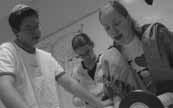
Milton Gottesman
Caroline and Joseph S. Gruss
Life Monument Funds
Jack Haddad
Samuel Jemal
Jesselson Family
Floy and Amos Kaminski
Kingsbridge Heights Jewish Center
Longhill Charitable Foundation
Bernie Mermelstein
Jamie and David J. Mitchell
Nash Family Foundation
Estate of Rosalind Posner
Potamkin Foundation
Protégé Partners
Amy and Mark Robbins
Evelyn Kenvin and Arthur Rosenbloom, John Ruskay
Ellen and Jerome Stern
Anonymous (1)
In compiling our lists of contributors, we have tried to be as accurate as possible. If your name has been omitted or listed incorrectly, please let us know and accept our sincere apologies.
Reading from the Torah
Capital Campaign Update
In the two years since the start of our Capital Campaign, more than 100 gifts have been received, totaling over $48 million — $7 million shy of our $55 million goal. While there is reason to be proud of how far the community has come in this fundraising campaign, none of us should lose sight of how challenging the “home stretch” of any campaign can be. Bob Gottesman, co-chairman of the Capital Campaign, understands that there is hard work ahead, but he feels re-energized, now that the school is open.
“ The community we have created in the Heschel High School, consisting of students, teachers and administration, is a whole new educational template,” said Bob. “What was a dream a few short months ago has become a reality that exceeds our expectations. All of us who supported this campaign feel deeply satisfied. Now, the challenge is to turn our belief into financial support so that we may complete what we set out to do.”
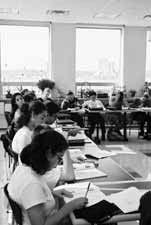
In recognition of the many donors — individuals, families, and foundations, from both within and outside of the Heschel community — the building committee, in conjunction with Roger Whitehouse of Whitehouse Graphic Design, has designed a community donor wall in the Heschel High School.
The committee, comprised of Judy Steinhardt (chairperson), Alisa Doctoroff, Trudy Gottesman, Shira Nadich Levin, and Liz Neumark, sought to come up with a concept that was reflective of the Heschel community, one that would visually show how all parts worked together to create the High School. The wall is made up of gently colored four inch glass blocks that are laid randomly in a sweeping motion, strewn across the wall in a wave effect. The unique donor recognition wall along with the grand staircase will be an artistic, striking addition to the atrium of our new building on 60th Street and West End Avenue.
If you have ideas on ways to reach out to our extended families, friends and business associates who would be interested in this project or if you would like to help complete the fundraising needs, please contact Carol Weintraub, our Director of Institutional Advancement, with suggestions.
Planning for Next Year Underway
The word is out on the street about the Heschel High School and it is great!! Our high school students are buzzing with excitement and their electricity has filled the air with good energy. People outside of our community have already heard positive reports and are responding enthusiastically – so much so that the first two open houses for the second class of the Heschel High School is already filled to the rafters!!
According to Marsha Feris, Director of Admissions, enthusiasm for our high school continues unabated. Calls are flooding in. “We will have an extraordinarily high caliber group of applicants from which to choose for the second class of our high school.”
Families coming to the open houses will get a first hand look at our beautiful new high school building. Interested parents and students are coming from independent schools, public schools and Jewish days schools based in Manhattan, Westchester, Brooklyn, Riverdale and New Jersey. In addition to the meetings at Heschel, Ahuva Halberstam and Marsha Feris will be visiting several schools — including Park East and Hannah Senesh — in the coming weeks. Marsha and Ahuva will be hosting an informational session for school placement and educational consultants.
The third open house scheduled for December is already more than halffull.Since the cafeteria will be completed by then,the school will be able to accommodate more prospective families at this final meeting.
An open house for the Heschel class of 2003 took place on October 29th at the high school. At that time, parents saw some of the classrooms, visited the cafeteria and exchanged thoughts and questions with Roanna Shorofsky, Ahuva Halberstam and four of our current ninth graders. The High School’s Director of Student Life was on hand as well.
Class in session, river views…
THE ABRAHAM JOSHUA HESCHEL SCHOOL• 270 W. 89 ST. • NYC 10024 11/02
This issue of The Heschel Blue Print was created by Alisa Doctoroff, Rachel Ringler and Lola Troy Fiur
